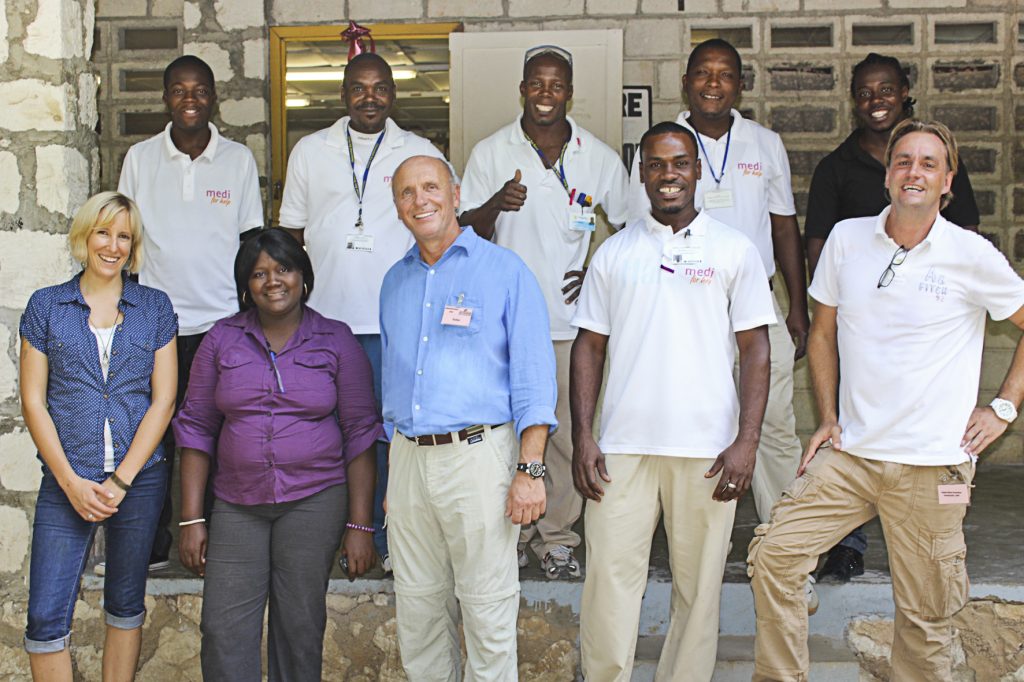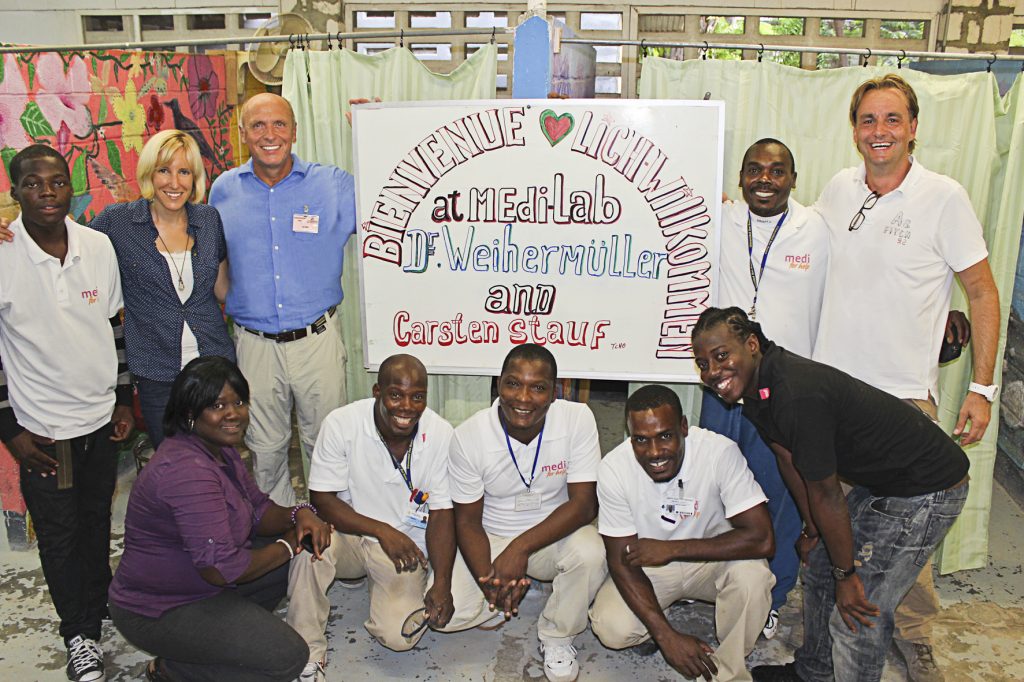
Dr. Michael Weihermüller visits the prosthetics workshop in Haiti
He had his heart set on this journey. Dr Michael Weihermüller, CEO medi GmbH & Co. KG, visited Haiti in mid-September to see the work and the development of the relief project medi for help (mfh) for himself. He set this up together with his brother shortly after the catastrophic earthquake in January 2010.
His two-day visit started on 11 September with a tour of the Hôpital Albert Schweitzer in Deschapelles. The hospital is mfh’s most important operative partner in Haiti. Dr Weihermüller asked many questions about the various departments including traumatology, paediatrics and surgery. In talks with doctors and nursing staff he found out about the most common forms of treatment and the challenges, also of an organisational nature, that have to be overcome.
The orthopaedic workshop is also on the grounds of the hospital. This is where the relief project from Bayreuth started, and has now been devoted to providing leg prostheses for four years. Dr Weihermüller received a warm welcome from the technicians and employees as well as the workshop manager Cornelia Köhler who showed him the various treatment and production rooms and the many machines they use for making up prostheses and orthoses. He was deeply impressed by the size of the workshop and the work performed by all the staff members – especially the technicians. Over 800 medical devices were provided between February and November 2010, shortly after the catastrophic earthquake – possibly a record-breaking number.

During the following exchange of news and views with the indigenous technicians they not only talked about many subjects related to their work, they also put forward a few requests. The Haitian employees showed a particular interest in specialist theoretical training. Cornelia Köhler has already found a suitable training programme.
This offers further training to Certified Prosthetist / Orthotist (CPO), Standard 2. One very important aspect of this: both the training and the examinations are held in the island’s language Creole. mfh tried to achieve certification for two of its technicians by a correspondence course last year. Unfortunately the language barrier made this impossible. Whether the course will actually be offered depends on the number of participants. By mid-February it should be clear whether and when the course can begin.
Reliable help in future
Besides the need for training, another important fact is that mfh will continue its commitment in Haiti in the coming years. The need for traumatology surgery support was made just as clear as expansion to include orthotic devices. Hence the help provided by mfh will extend beyond the field of prosthetics in future.
Dr Weihermüller’s second day began with a visit to another important mfh partner, the Catholic Medical Mission Board (CMMB) in Port-au-Prince. The CMMB is a most valuable partner, especially in organisational affairs. Since the relief project is repeatedly faced with delays and problems with material acquisition, he took this opportunity to discuss ways of improving the situation with those responsible at the CMMB. The tour of the second point of care, the new orthopaedic workshop “Atelier de Prothèses et Orthèses” was another highlight of the journey. The workshop was set up with the partners CMMB, Harold et Kayrita Anderson Family Foundation, Hanger Inc. Prosthetics & Orthotics and Physicians for Peace, and handed over to the St. Vincent Center for handicapped children in July 2013 after a long construction phase. This is a long-needed complement to the prosthesis workshop in Deschapelles.
The fact that this is not the CMMB’s last building project became clear during the walk around the neighbouring St. Vincent’s school. 240 severely handicapped orphans live here, some of them in very dilapidated accommodation. In fact, the classrooms cannot be used any more either. CMMB is now planning to build a new school on this plot. medi for help is also looking for sponsors for this pioneering project.
Summary: mfh has already achieved so much in Haiti. But: there is still so much to be done. mfh and its partners are facing up to these challenges. In this way we can focus all our efforts in future to support the people of Haiti.